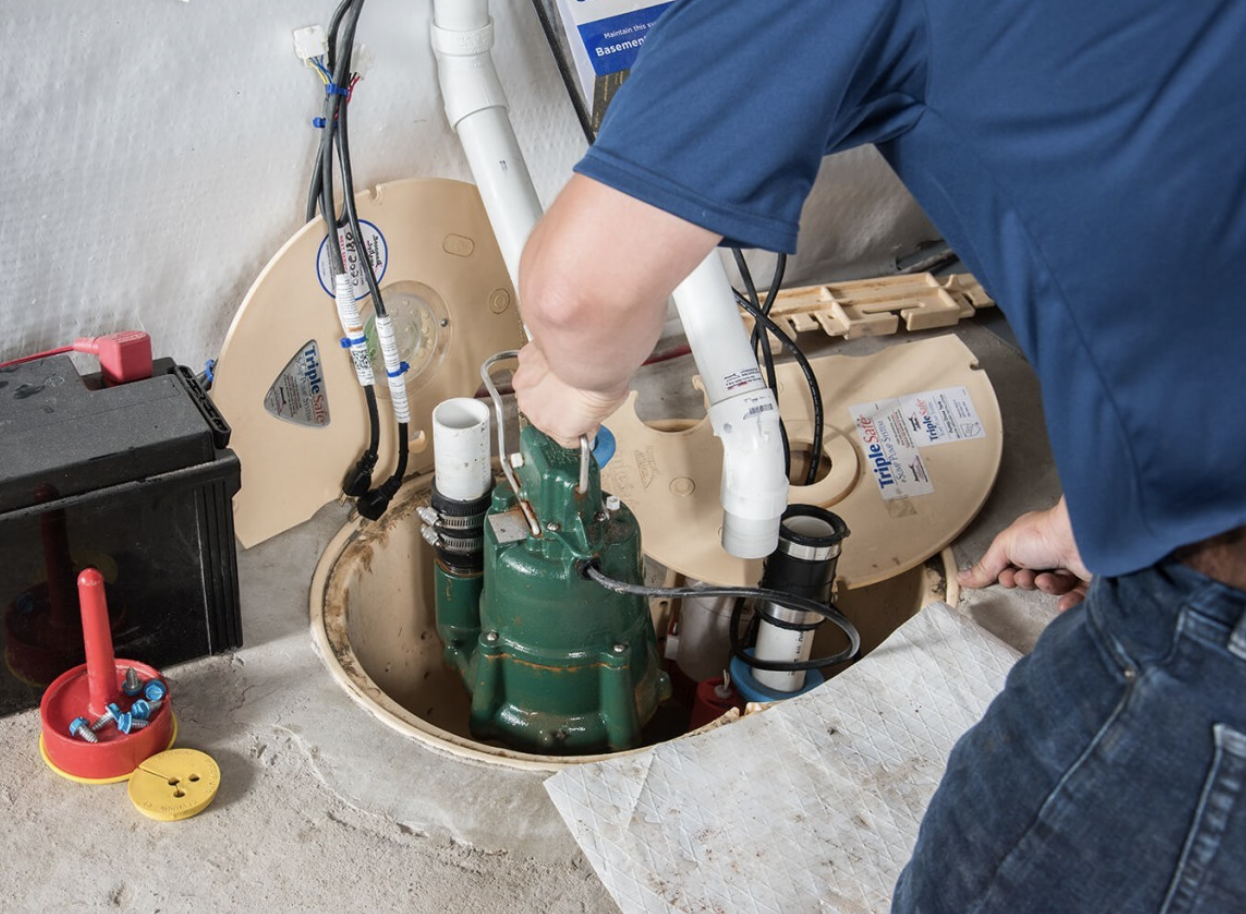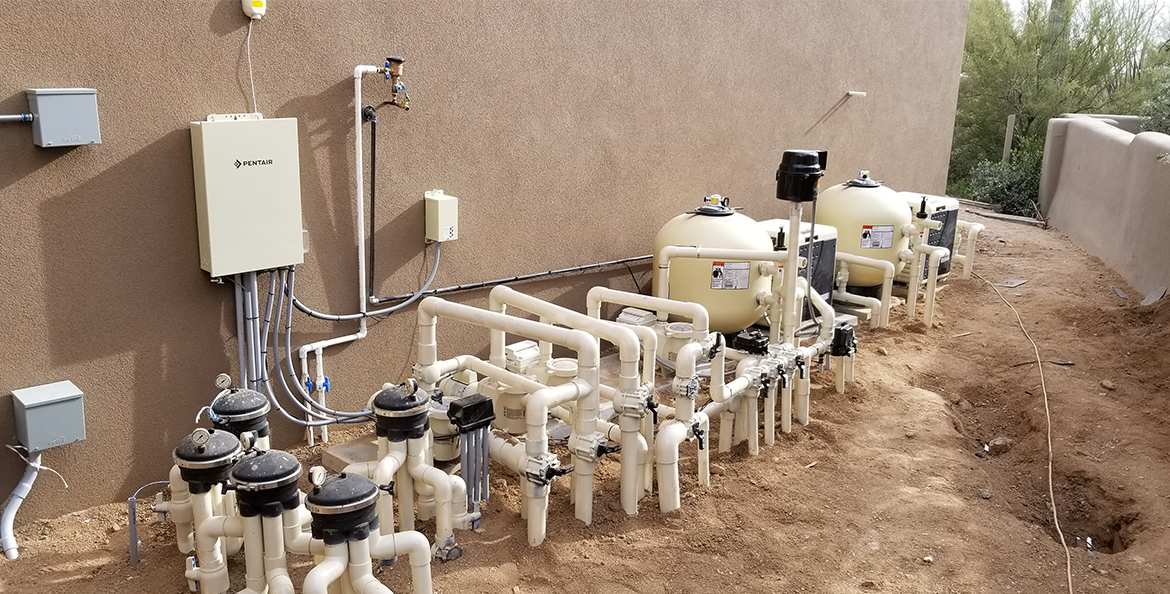Cutting-Edge Water Filtration Systems: Encouraging Healthier Living Settings
Wiki Article
Comprehending the Trick Elements of Effective Water Filtering Systems

Relevance of Water Filtering Equipment
Water filtration systems play a crucial function in ensuring accessibility to tidy and safe drinking water by effectively eliminating contaminants and contaminations. These systems are essential in addressing the growing problems over water quality and the prospective health risks connected with consuming infected water. By using different filtration devices such as reverse osmosis, activated carbon, and UV sterilization, water purification systems can successfully remove hazardous materials like bacteria, infections, heavy metals, and chemicals from the water.Moreover, water filtration systems assist to boost the taste and smell of water by removing chlorine, debris, and other contaminants that can impact its high quality. Water Treatment. This enhancement in water high quality not just makes it more palatable yet likewise urges people to consume an adequate amount of water daily, promoting far better hydration and overall wellness
Types of Filtration Components

Physical filters are created to literally strain out pollutants from the water. These filters can be constructed from products like ceramic, carbon, or even sand, and they work by capturing particles bigger than the filter's pores as water goes through.
Chemical filters use various chemical procedures to remove contaminants from the water. Examples consist of turned on carbon filters, which adsorb contaminations, and reverse osmosis membrane layers, which make use of stress to separate impurities from the water.
Biological filters utilize living microorganisms like bacteria or algae to damage down raw material and contaminants in the water. These filters are often utilized in wastewater treatment plants or natural water purification systems.
Understanding the different kinds of filtering parts is critical for choosing one of the most ideal water purification system for specific filtration requirements.
Feature of Sediment Filters
Debris filters play a crucial function in water purification systems by properly catching strong bits put on hold in the water. These filters are usually the very first line of defense in a purification system, eliminating larger bits such as sand, silt, dust, and rust before the water moves via finer filtration stages. By trapping these debris, the filters prevent them from reaching downstream parts, thus expanding the lifespan and performance of the entire system.The function of sediment filters is essential in keeping water quality and shielding delicate devices from damages brought on by debris. In addition, by removing visible bits, debris filters improve the quality and taste of the water. Regularly changing or cleaning up sediment filters is necessary to make certain ideal performance. Neglecting this maintenance can cause obstructing, minimized water flow, and endangered purification efficiency. On the whole, debris filters are crucial components that add considerably to the effectiveness of water purification systems.
Duty of Turned On Carbon Filters
Playing an essential duty in water purification systems, turned on carbon filters are important in eliminating contaminations and contaminants from the water supply. As Source water passes via the filter, the activated carbon holds and draws in onto the contaminations, making sure that the water that comes out on the various other side is cleaner and much safer for intake.Activated carbon filters are extremely reliable at improving the preference and odor of water by lowering chemicals that can impact its high quality. They are likewise qualified of eliminating certain heavy steels like lead and mercury. Additionally, these filters can help avoid the buildup of microorganisms and algae in water, additional home boosting its overall quality. Due to their versatility and integrity, triggered carbon filters are an essential component in making sure that water is cleansed to the highest criteria before getting to consumers.
Recognizing Reverse Osmosis Equipments
Reverse osmosis systems are advanced water filtering systems that utilize an advanced procedure to eliminate impurities and impurities from drinking water. These systems work by applying pressure to the water, forcing it through a semi-permeable membrane.One key benefit of reverse osmosis systems is their capacity to get rid of a wide variety of contaminants, consisting of heavy steels, liquified solids, germs, and infections. This makes them highly efficient in enhancing the overall top quality and security of alcohol consumption water. Furthermore, reverse osmosis systems are relatively low-maintenance and can be set up under the sink or in a central filtration system, supplying hassle-free accessibility to clean water throughout the home. In general, recognizing exactly how reverse osmosis systems work can help individuals make informed choices concerning their water filtering demands.
Final Thought
In conclusion, efficient water purification systems are vital for guaranteeing secure and clean drinking water. The key components of these systems consist of debris filters, turned on carbon filters, and reverse osmosis systems. By recognizing the function and function of each element, individuals can make educated decisions when choosing a water purification Water Treatment system. It is very important to focus on the top quality of water in order to advertise overall health and well-being.Water filtration systems play an important role in ensuring accessibility to clean and secure drinking water by efficiently removing impurities and pollutants. By making use of various purification systems such as reverse osmosis, turned on carbon, and UV sanitation, water filtration systems can efficiently eliminate hazardous compounds like microorganisms, viruses, hefty steels, and chemicals from the water supply.
Sediment filters play an important duty in water purification systems by efficiently capturing strong particles put on hold in the water (Well Pump Replacement).Playing a crucial role in water filtration systems, triggered carbon filters are instrumental in eliminating contaminations and contaminants from the water supply.Reverse osmosis systems are innovative water filtering systems that use a sophisticated process to eliminate impurities and impurities from alcohol consumption water
Report this wiki page